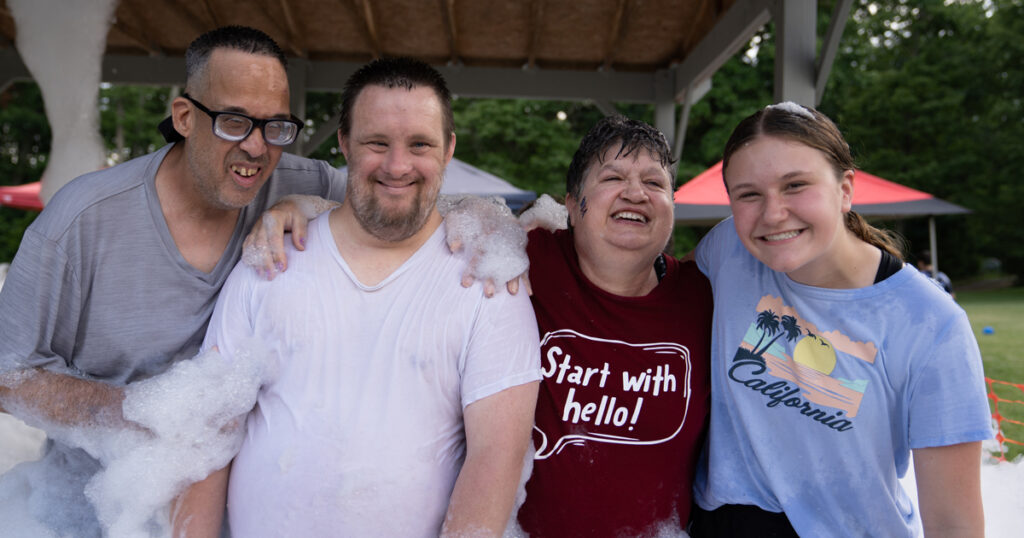

The days are getting a bit longer, the weather is warming up, and school years are coming to an end. For many individuals and families impacted by disability in your church, the end of the school year ushers in a season that may be filled with unique stressors. The church can play an important role in supporting these families and individuals during the often more unstructured summer months.
During the summer months, many churches have outdoor movie nights, picnics at the park, swim parties, and more. As you plan for your food menu and begin to dig out that volleyball net in storage for the all church BBQ, make sure you have a plan for welcoming those with disabilities. This may mean reaching out to the family prior to the event to share important information about venue accessibility and answer questions about program structure and timing for the event. Be sure to clearly communicate expectations about parent/guardian participation and supervision (ie, Is it a drop-off event? Are parents/guardians of those attending required to stay for the duration of the event? Who is in charge of supervising attendees?). Communicating this type of information prior to the event and welcoming space for feedback is a vital step in ensuring your families and individuals with disabilities can participate.
If your church is hosting a summer day camp, ensure that you know of the campers who may have disabilities, significant allergies, and/ or medical needs. This information is vital for creating a support plan for campers, building trust with families, and appropriately equipping camp staff and volunteers. If possible, invite families and campers to view camp facilities prior to the start of camp and be available to answer any pre-camp questions. Communicate clearly to the family and relevant camp staff what supports and accommodations, if any, will be provided to their camper during the week (ie. Buddy support, access to sensory area at camp). Consider recruiting and training additional volunteers and/or staff to provide support for campers who may present with previously unknown needs.
Everyone wants to be seen and known in their community of fellowship. Regardless of whether individuals and families are able to attend church regularly on Sunday mornings throughout the summer, a sincere, thoughtful text, email, or call to see how they are doing would likely be a welcome gesture of connection and care. If specific needs are communicated by individuals or families, be sure to ask permission from the family or individual to follow up with other ministers in the church and circle back regarding any actions you took. For example, you might find out that the parent of a teenager with autism has an upcoming surgery, and the family communicates they are in need of meals during the recovery period, so you ask the family if it is alright for you to contact the minister overseeing meals coordination. Intentional connection with families and individuals with disabilities in your church communicates that they are valuable members of your church family.
Summer can be a rich time for families and individuals with disabilities to enjoy fellowship with the church body and engage in community-building activities. Setting families and individuals, as well as your team, up for success will go a long way in making your church an inclusive, accessible, welcoming place for those with disabilities this summer.


